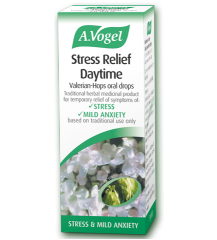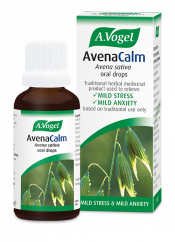How can being more optimistic help my stress levels?
Thinking positively about life, events, people and situations is a part of effective stress management. Studies have shown that through expecting good things in the future as well as adaptive management of personal goals and development, optimists are more successful in dealing with adverse events.1 Further research has found that optimists have better physical health, less cardiovascular diseases and improved immune systems.2
The way we perceive a situation can have a big impact on our stress levels and ability to cope. Being optimistic doesn’t mean turning your back on and ignoring your problems, it’s actually about approaching problems and unpleasant or stressful situations in a positive way.
Is there such a thing as too much optimism?
Actually, yes as it turns out, life requires a balance between optimism and pessimism; too much pessimism makes life feel miserable however; too much optimism can lead to reckless decisions and risky behaviour. We need pessimism for survival because it encourages us to question particularly reckless and scary decisions that could potentially threaten us. However, as I mentioned, too much can make us feel low and can lead to stress and anxiety and, without a bit of optimism in our lives, we wouldn’t be open to trying new things.
What does negative thinking do to us?
Research has found that negative thinking and negative thought processes hinders our ability to solve problems and makes it harder to think clearly about the situation.3 Rumination is the term given when we obsess endlessly over problems or worries and is a common issue in depression and anxiety. Those who suffer from depression tend to ruminate over being inadequate or worthless while the repetition of these thoughts and feelings can then result in feelings of anxiety.
When we think negatively and ruminate over our problems we close ourselves off to being able to flexibly generate solutions. Breaking from or reversing negative thought processes is tricky and it may take some time. Don’t worry though, I’m on hand with some tips to help you along the way.
4 ways to be more optimistic
1) Don’t aim for happiness, aim for engagement
When we try to force ourselves to be happy we put an unnecessary pressure on ourselves and often, because we are trying so hard to be happy we end up missing it entirely. Instead, try to focus on something that really catches your attention and completely engages you – have you ever had that feeling of complete and total absorption in an activity that you had no idea how much time has passed? Well, that’s the feeling that we’re after here. Don’t worry if you aren’t sure or haven’t found something that makes you feel this way – this is the time to experiment and try something new.
Being optimistic encourages us to believe that the future will be even better than the past. Setting goals and trying new things will help keep you excited and discover new opportunities where you might otherwise not have found them.
2) Be on thought watch
Negative thoughts are more likely to contribute to a pessimistic view of life. Reversing negative thinking patterns and replacing them with positive ones can help us feel happier, more optimistic and less likely to engage in pessimistic thoughts.
When you notice negative thoughts entering your mind try to stop them in their tracks before they tempt you into ruminating. As soon as a thought that is negative pops into your head try saying ‘stop!’ (either out loud, or in your head works too). Or, you could try visualising a stop sign as soon as these destructive thoughts appear. This can be tricky at first but, with a little perseverance and practice you’ll soon find that negative thoughts come less frequently than positive ones.

3) Seek out silver linings, not thunder clouds
When we are faced with a difficult situation we choose how to react. Sometimes it can be easy to get caught up looking for people or things to blame when a problem presents itself. Rather than looking for more problems try to look for solutions instead.
Instead of going over what could have been done differently or all of the ways the problem could have been avoided, look for solutions to the problem. Rather than let stress run away with your thoughts try to take control; can you learn anything from the problem? How can it guide you in the future?
If you find yourself getting stressed or stuck in a negative cycle, try to remove yourself from the situation for a little bit. Completely detach yourself and distract your mind for a good couple of hours at least (sometimes it is better to leave things for longer if we can!) and then come back to it with a fresh, positive mind set. It may be difficult at first but try to look for the positives in the situation and begin searching out solutions.
4) Surround yourself with fellow optimists
If you are surrounded by people who are more pessimistic than optimistic, then the chances are their pessimism will rub off on you too. This doesn’t mean you should entirely abandon all your friends, family and co-workers who have said negative things, but it can be extremely nourishing for us to get out there and find some more positive influences.
Sometimes though, this just isn’t an available option to us, so if you find yourself surrounded by people who are complaining about a situation or problem, try not to partake and avoid negatively fuelling the fire and see if instead you can shed some positive light on the situation.

What else can I do to tackle stress?
When it comes to stress, the best way to tackle it is by a combination of inside and outside lifestyle habits that cultivate a sense of positive wellbeing. Exercise is one of the absolute best ways to release stress because it produces feel good hormones and neurotransmitters such as endorphins and norepinephrine which are associated with better mood. Not only are excess levels of the stress hormone cortisol reduced by exercising, but it also helps our brain-body communication which improves our ability to deal with stress.
Herbal remedies are a good natural alternative to try if you feel you need an extra bit of support and don’t want to experience the side effects that are associated with medication. My go-to recommendation for stress is our Stress Relief Daytime which is made from extracts of organically grown, natural herbs to help you cope with the stresses that can build up in day-to-day life.
1 https://www.ncbi.nlm.nih.gov/pmc/articles/PMC2894461/
2 https://www.ncbi.nlm.nih.gov/pmc/articles/PMC3807005/
3 https://www.powerofpositivity.com/negative-thinking-affects-your-brain/








